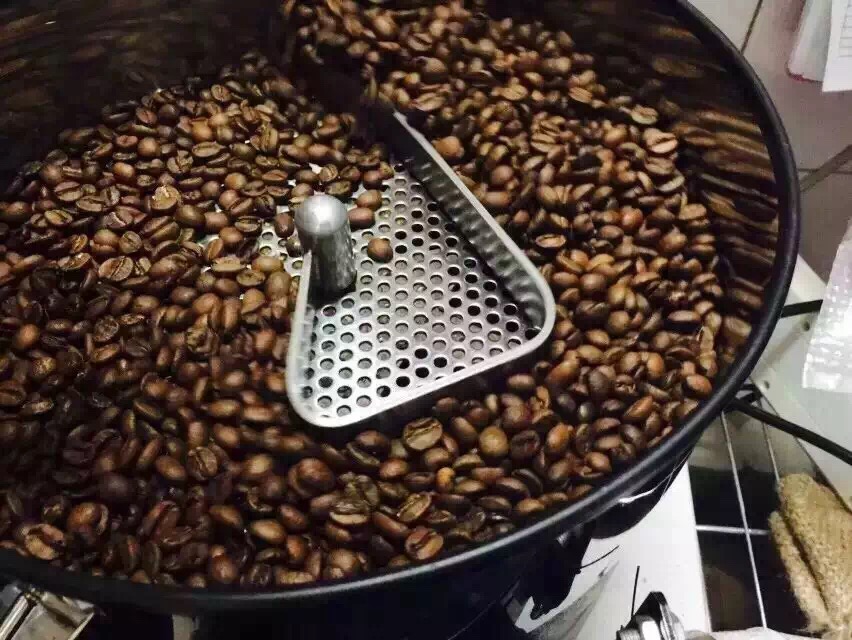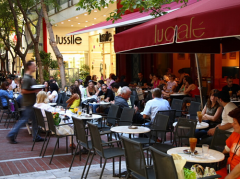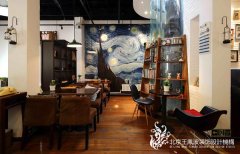Reflections on the Culture of Coffee shops in Taiwan

There are still a lot of things left unsaid in Fresh Travel, so I want to talk more about Taiwan's cafe culture and its sports practices. Coffee shops and independent bookstores are two of the most interesting places in Taiwan.
Cafes are a node extending in all directions in Taiwanese culture. It not only carries the publicity of the whole city, but also some art magazines that can be sold. It also condenses a group of specific social animals. For example, a cat lies on the roadside near Yongkang Street, which is the meeting place of various independent filmmakers and social activists at night. Ecological Green Coffee is the gathering point of fair trade, where all kinds of whimsy and social innovation activities are carried out. Danny's #Venue Support #in his article Open Shared Community is exactly what Taiwan lacks most.
What do Taiwanese cafes do? The answer I give is story (soul). Every cafe with a little content is stuffed with its own story. Many people doubt the power of literature and art, many people hate small fresh, but coffee shops in Taiwan are actually social sports occasions with food aroma. In addition to providing coffee, they are also doing a spiritual advocacy. Organic life, sustainable development, liberal democracy and gender equality are all hot keywords on the blackboard.
Ecological Green Public Welfare Practice
Among them, EcoGreen is a coffee shop specializing in selling Fair Trade coffee beans. In the early days of its operation, it allowed customers to set their own prices for each cup of coffee. Whenever customers expressed doubts about this link, the owner would come out and explain to him the story behind the coffee of coffee farmers living in Bangladesh and Sumatra, and then let them decide the value of their own coffee. The concept of fair trade was gradually introduced in taiwan in a surprising way.
As the income of coffee shops gradually stabilized, a few years later, Ecological Green began to gather some college students concerned with social change and other NGOs to form Fair Trade Association, which moved from simple dissemination of coffee shops to another level of organized action. The social network of the concept of fair trade gradually formed. Owner Yu Ruxiang is also a blogger, and I loved reading her articles when I was in Taiwan to learn what was happening in the field. Her articles are full of her own thoughts and explorations on food design, organic life, third world countries, coffee culture, all of which are very interesting to me.
It is also through the promotion of the Fair Trade Association and the Eco-Green Cafe, the Crazy Coffee Lab, the "Food and People" round-the-island independent film festival, Fair Trade teaching materials, Fair Trade tea rooms, all kinds of social innovation activities can be slowly implemented because of a concept that has only been developed in Taiwan for six years.
Temperature Marketing in Taiwan
I had a chat with Karen, Secretary General of the Fair Trade Association, and I still remember asking her the last question: Why is Fair Trade developing so slowly in China, but it has gained recognition so quickly in Taiwan and formed a network throughout enterprises, universities and society? She told me that Taiwan's marketing comes from stories. We let others know the warmth and help behind this word through emotional and warm stories, and also let everyone remember ecological green as soon as they think of fair trade. Owner blogs, coffee production and production tutorials, traveling film festivals, and discussions of the relationship between food and people are all part of the effort to reinforce the sense of story and brand.
What kind of place is a cafe? In Europe, it originally existed as an intense social occasion. In Taiwan, it was also a part of social change. On the mainland, however, a large number of cafes still simply export their own home role. It's not bad, but if there's a cafe that can emerge and take on the promotion of a particular concept, if there's a cafe that can take on the responsibility of incubators for social innovation, if there's a cafe that can tell its stories and dreams, if there's a cafe that can be an advocate for civic education instead of a rigid place with a few magazines for everyone to relax, then this cafe will definitely become a star cafe.
Not only can everyone become the owner of a city, but even the cafe is also a city's business card, encouraging the cafe operator to become a practitioner of a certain state of life, consciously becoming the curator of the city, from the owner of a venue, to the provider of events, and then to the creator and organizer of an open space.
The beauty of the city is born from this!
Important Notice :
前街咖啡 FrontStreet Coffee has moved to new addredd:
FrontStreet Coffee Address: 315,Donghua East Road,GuangZhou
Tel:020 38364473
- Prev

Foreign Cafe Culture Foreign Cafe is usually called Caf é
Foreign cafes are usually called Caf, and the small Caf has only one coffee machine, with some snacks and simple sandwiches. The large Caf is equivalent to Restaurant, offering a variety of meals and drinks. Unlike domestic cafes, foreign cafes open at 7 a.m. or even earlier. It may also have something to do with living habits. Westerners start their day with a cup of coffee. Drink
- Next

Coffee culture and design style of coffee shop
Due to the relatively large scale of investment in coffee shops, investors should have a comprehensive understanding of various styles of coffee shops, whether they join chain brands or create their own brands. In the first-tier city, Starbucks is the most familiar figure. However, high rents and high-risk characteristics have deterred many investors. In fact, in second-and third-tier cities, coffee
Related
- How did the Salvadoran coffee industry develop in Central America?
- What exactly does the golden cup extraction of coffee mean?
- The Origin of Coffee flower
- [2023 Starbucks World Earth Day] there are more meaningful things besides free Starbucks coffee!
- What kind of coffee is there in Spain? 9 Flavors of Spanish Coffee
- Aromatic African coffee| Kenya's coffee culture and historical production area
- Liberica Coffee Bean knowledge: the characteristics of Liberian Coffee beans of the three original species of Coffee beans
- The origin and formula of Spanish latte introduces the taste characteristics of Bombon coffee in Valencia, Spain.
- How to adjust the solution of over-extracted coffee
- What is the tasting period of coffee beans? What is the period of coffee and beans? How should coffee wake up and raise beans?

